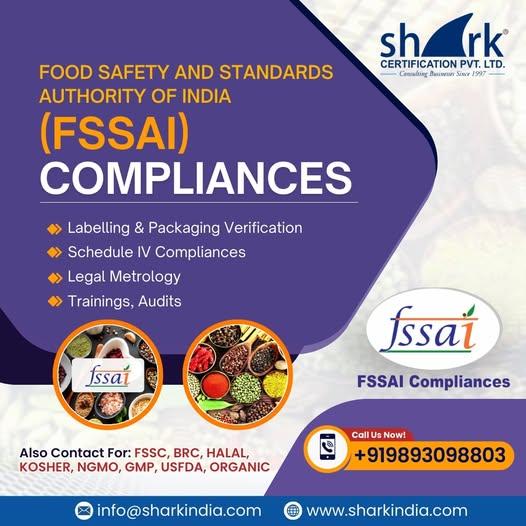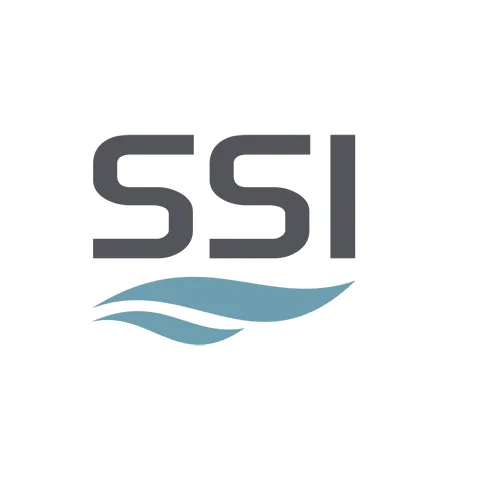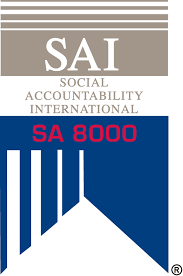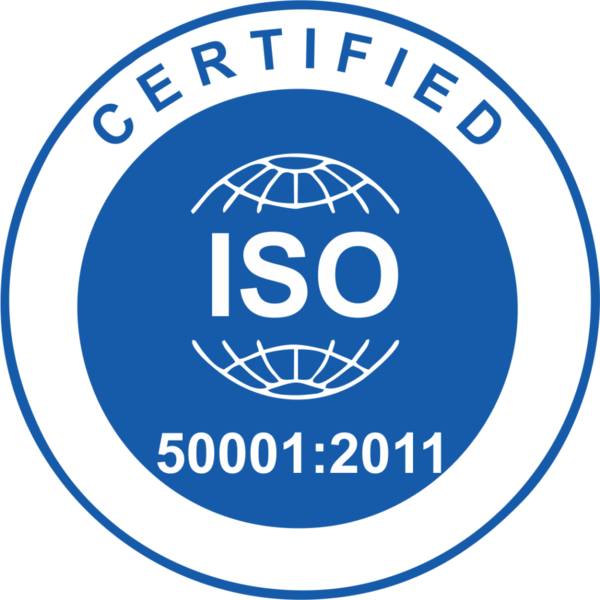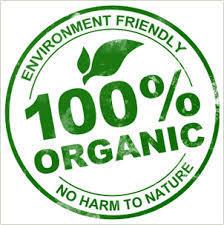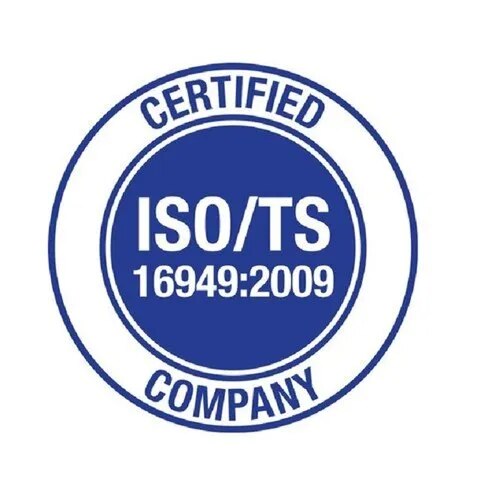FSSAI Compliance Services in Indore By Shark Certification Pvt. Ltd. – Your Trusted Food Safety Partner Under Section 31(1) & 31(2) of the Food Safety and Standards Act, 2006, every Food Business Operator (FBO) in India is legally required to obtain FSSAI Registration or License—whether you're a street vendor or a multi-national food brand. At Shark Certification Pvt. Ltd., we offer complete FSSAI compliance services to help food businesses across Indore and India meet mandatory regulatory requirements with ease and confidence. Who Needs FSSAI Registration or License? The FSSAI License/Registration is mandatory for businesses including (but not limited to): Small vendors, hawkers, and temporary or permanent food stalls Dairy businesses and milk chilling units Edible oil and vegetable oil processing units Slaughterhouses and meat processing facilities Food manufacturers, processors, and packaging units Proprietary and novel food producers (with FSSAI product approval/NOC) Cold storage, warehouse operators, and transporters (including refrigerated vans, milk tankers) Wholesalers, distributors, marketers, and retailers Hotels (star/non-star), restaurants, bars, and food chains Canteens, caterers, messes, clubs, and food vending agencies Home kitchens, dabbawalas, banquet halls, and religious food arrangements Importers, exporters, and e-commerce food businesses Government departments, corporate food outlets, airports, seaports, railways, and bus depots Mid-day meal kitchens and public food distribution centers Our FSSAI Compliance Services Include: At Shark Certification, we offer end-to-end FSSAI compliance support for businesses of all sizes and industries: New FSSAI Registration / State License / Central License Renewal of existing Registration or License Modification of license details including product category, address, or business structure Annual Return Filing (Form D1 / D2) and related declarations Assistance in Revocation of Suspended Licenses FSSAI Certified Training for FBOs and staff by qualified food safety trainers Facility Hygiene Audits by certified auditors Pre-inspection Surveys to prepare for official FSSAI audits and fix gaps before inspection Consultation on Labeling, Packaging, and Legal Metrology Norms Timely Alerts and Reminders for license renewal and return filing Why Choose Shark Certification Pvt. Ltd.? Certified Experts with deep industry and regulatory experience Accurate and Error-Free Filing with proper due diligence Confidentiality and Data Security assured Local Presence in Indore for better accessibility and faster service Free Initial Consultation to assess your FSSAI readiness Customized Compliance Plans for startups, SMEs, and large enterprises Training and Support throughout the certification journey Renewal and Filing Alerts via WhatsApp, Email, and SMS Updated Insights and Newsletters for food businesses Contact Us Today Ready to get your FSSAI Registration or License in Indore or any part of India? Let the experts at Shark Certification Pvt. Ltd. guide you through every step—from documentation to audit support.

